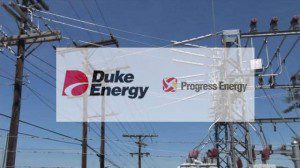Benefiting from low natural-gas prices, two Florida utilities said Friday their customers likely will see cheaper monthly electric bills in 2013.
Progress Energy Florida and Tampa Electric Co. announced the savings after making a series of filings with the state Public Service Commission. Those annual filings detail projections for a variety of expenses that show up in customers’ bills, such as buying fuel for power plants and complying with environmental regulations.
Progress said its residential customers who use 1,000 kilowatt hours of electricity a month would see their bills go from the current $123.19 to $115.75, as of January. Similar Tampa Electric customers would see their monthly bills drop from $106.90 to $102.58.
Utilities commonly use 1,000-kilowatt hour residential bills as a benchmark, though electricity consumption varies widely. The Public Service Commission will review the filings and sign off on final numbers this fall.
Progress, Tampa Electric and other utilities are enjoying relatively low natural-gas prices, which enables them to pass along fuel cost savings to customers. Fuel costs and base electric rates, which pay for many of the day-to-day operations of utilities and include profits, are the largest parts of customers’ electric bills.
Tampa Electric, for example, said fuel costs make up about 40 percent of its customers’ bills. Utilities are required to pass along those fuel costs and not profit from them.
Along with lower fuel costs, Progress in 2013 will give customers a $129 million refund that was negotiated early this year as part of a wide-ranging settlement dealing with base rates and nuclear-power projects.
“Progress Energy Florida is working to manage and mitigate expenses, and we are focused on keeping electric costs as low as possible for the more than 1.6 million households and businesses that depend on us,” Vincent Dolan, the company’s state president, said in a prepared statement.
Meanwhile Friday, the Public Service Commission finished a two-week hearing in which Florida Power & Light has sought as much as $690.4 million in base-rate increases. The state’s Office of Public Counsel, which represents consumers in utility cases, has led a challenge to the request — and has argued FPL’s base rates should be reduced, not go up.
The PSC also will meet Sept. 27 to consider a proposal by FPL and some large power users to settle the base-rate case. But the Office of Public Counsel and the Florida Retail Federation, a group that frequently intervenes in utility cases, have fought the proposed settlement, which calls for about $548 million in base-rate increases.
by Jim Saunders



